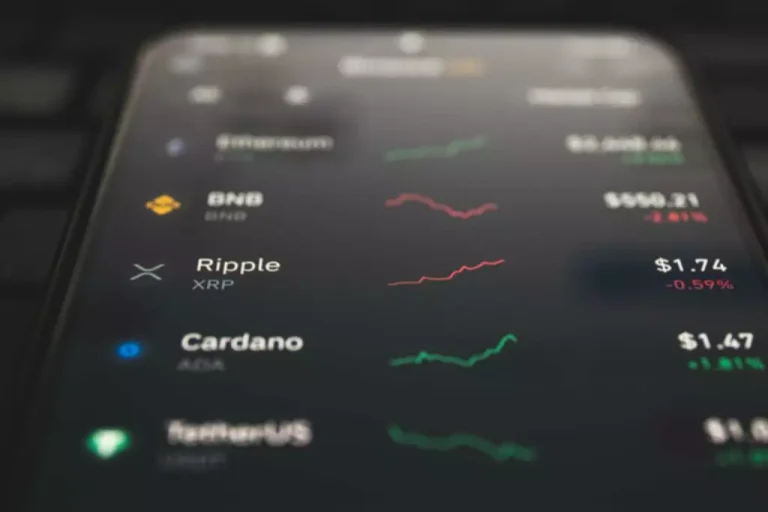If you’re new to crypto and you’re wondering how crypto wallets work – and why you need one – you’ve come to the right place. Trust us – doing this essential groundwork, and properly understanding how blockchain assets work, will set you up for success (not to mention security) as you embark on your crypto journey. Those who prefer complete control over their private key and immediate access to their coins can provide their own custody. This is more commonly used by advanced crypto users as it can be challenging to learn and maintain. Hardware wallets are generally considered to be the safest type of crypto wallet. These wallets can be stored offline and are therefore not subject to hacker and malware risks.
- Mobile wallets tend to be compatible with iOS or Android devices.
- However, as NFTs are not natively supported by either of these wallets, users need to connect their hardware wallet to a hot wallet that’s capable of storing and managing NFTs.
- The only way you can access the funds at a specific blockchain address is with something called a private key.
- Crypto wallets that allow the storing of different cryptocurrencies can be much easier than using a different wallet for each currency.
- The primary function of a crypto wallet is to store your private key, which is necessary to transact on any blockchain network.
- Custodial wallets are hosted by a third party that stores your keys for you.
In a case scenario where the seed phrase is lost, the user also loses access to their funds. So it is imperative to keep the mnemonic phrase in a secure location, and to not store a digital copy of it anywhere. Do not print it out at a public printer or take a picture of it. The implication here is that users must trust the service provider to securely store their tokens and implement strong security measures to prevent unauthorised access. These measures include two-factor authentication (2FA), email confirmation, and biometric authentication, such as facial recognition or fingerprint verification. Many exchanges will not allow a user to make transactions until these security measures are properly set up.
crypto wallet (cryptocurrency wallet)
What is the most hacker-proof is to save your private key on a physical document that is completely offline. Each digital wallet will also have a public key, which is a string of numbers and letters. It is an address that will appear within the blockchain as your transactions take place—no visible records of who did what transaction with who, only the number of a wallet. Some are able to hold only selected currencies, while others can deal in multiple currencies.

An example of a physical medium used for cold storage is a piece of paper or an engraved piece of metal. However, this also means the keys to your crypto are always online – this means a hacker can use your personal device and connection as a vector for accessing your private keys remotely. The most common way crypto users get scammed is via a hacked device. So having a hot wallet might be easy, but it doesn’t offer the security you might want.
Types of Crypto Wallets
The Ledger Nano comes with a Secure Element chip, which is similar to the technology found in passports and credit cards. Hosted wallets are simple and easy to set up, which explains their popularity. Let’s take a look at the three most popular types of crypto wallet.
Always try to copy and paste wallet addresses or scan a QR code to avoid mistakes. If you tend to misplace things and are generally not well organized, you may want to consider a custodial wallet. Unlike non-custodial wallets, if you forget your password credentials for a custodial wallet, you will be able to recover them through your broker. If you want to swap crypto on a crypto exchange, you simply need to visit that protocol’s website and connect your wallet. The transaction is set up on the protocol but confirmed on the wallet.
Tastytrade, Inc. and tastylive, Inc. are separate but affiliated companies. Determining the type of wallet best suited for you depends on a few factors. The Ethereum blockchain is not compatible with the Bitcoin blockchain. For this reason, you will need to have a wallet for each network if you want to interact with both of these networks. In the financial markets, notional value refers to the amount of money controlled by a given financial position.
Since each individual’s situation is unique, a qualified professional should always be consulted before making any financial decisions. Investopedia makes no representations or warranties as to the accuracy or timeliness of the information contained herein. There are various wallets you can choose from with many options. It’s best to read as many reviews as possible to find one that fits your needs while ensuring your keys are secure. Many wallets have integrated QR codes and near-field scanner technology that allows you to scan a code, select an amount, enter your key, select the transaction fee, and click send. There are numerous benefits to a crypto wallet and potential disadvantages, depending on the type of wallet being used.
Custodial wallets, on the other hand, are wallets offered by crypto businesses such as crypto exchanges like Gemini Wallet, BlockFi Wallet or eToro. Offline wallets from Exodus or MetaMask, both offline storage options, are examples of non-custodial options. These wallets are touted hardware cryptocurrency wallet for security, meaning they’re less prone to hacks. But like cryptocurrency, the concept of a crypto wallet is pretty abstract. Let’s take a closer look at these essential crypto tools and how they work. The first wallet was that of Bitcoin’s developer, Satoshi Nakamoto.
Online Wallets
DApp browsers are specialized software that supports decentralized applications. DApp browsers are considered to be the browsers of Web3 and are the gateway to access the decentralized applications which are based on blockchain technology. That means all DApp browsers must have a unique code system to unify all the different codes of the DApps. However, there is nothing wrong with using a paper wallet if you take measures to store it properly in a safe or deposit box and check on it once in a while to ensure it hasn’t deteriorated.
Some software wallets also include additional functionality, such as exchange integration if you’re using a wallet designed by a cryptocurrency exchange. Ledger devices are some of the most secure crypto wallets in existence, securing your private keys with a Secure Element Chip. This component is used in a variety of secure environments such as credit cards, passports, and payment systems. Renowned for bringing the highest level of security to any system where sensitive data is managed. A paper wallet is an offline process for storing cryptocurrencies. This wallet is a printed paper that has both your private key and public key, which are accessed using a QR code.
Using a hardware or paper wallet may feel inconvenient, but these types of crypto wallets are the most secure. Cold storage is more secure because private keys to digital assets are held offline without any Internet connection. Software and Web-based wallets—those in hot storage—are less secure.
Dividing property during divorce varies by state, and typically, dividing cryptocurrency is similar to dividing any other assets among parties. This blockchain wallet video tutorial provides demos for the different kinds of wallets talked about here, including actual transactions. To really take your career to the next level and boost your earning potential, even more, sign up for the Blockchain Developer certification training. The article explains what is blockchain wallet, gives reasons as to why you might use a blockchain wallet and describes the different types of blockchain wallets. For example, addresses XYZ, xyz, and XyZ could potentially be 3 different wallets.

Each wallet comes with a private key that allows you—and only you—to access the wallet’s contents. But setting up your wallet isn’t just about socking away any Bitcoin or Ethereum you may buy on an exchange. It also allows you to securely send and receive these and other types of cryptocurrencies. Its prices range from around $79 to $149, and Ledger can integrate with many popular software wallets such as Crypto.com and Guarda.
The network then includes the transaction to reflect the updated balance in both the sender’s and recipient’s address. If you actively trade cryptocurrencies Ledger is a great option. A Software wallet, more often known as a hot wallet, operates as software on a host device and they store your private keys within its interface. Mostly, these wallets are non-custodial, meaning they give you custody of your keys. However, they store your private keys on an internet-connected application on your phone or laptop and this is a risk.
A crypto wallet provides a way for users to validate an account balance to provide visibility into how much cryptocurrency the user owns. A crypto wallet enables users to send and receive cryptocurrency transactions — an approach that’s similar in concept to how a traditional bank account enables users to conduct transactions. For many users, https://www.xcritical.in/ a crypto wallet is a primary mechanism for managing cryptocurrency balances. A paper wallet is a physical location where the private and public keys are written down or printed. In many ways, this is safer than keeping funds in a hot wallet, since remote hackers have no way of accessing these keys, which are kept safe from phishing attacks.





